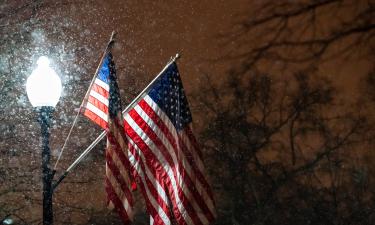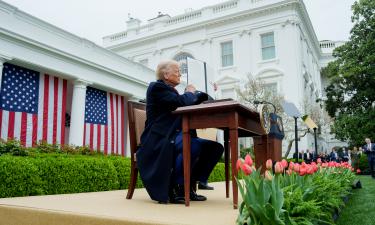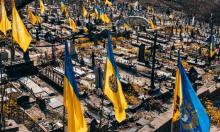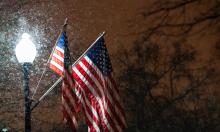Suicide car bomber kills 11 Iraqi police commandos in Ramadi, U.S. military says
A suicide bomber detonated an explosives-laden vehicle near the restive central city of Ramadi, killing 11 Iraqi police commandos and injuring 14 other people including two U.S. Army soldiers, the U.S. military said Friday.
The Thursday evening blast at a checkpoint on the eastern outskirts of Ramadi also wounded nine Iraqi security-force members and three civilians, bringing the list of victims to 25, U.S. Marine Capt. Jeffrey Pool told The Associated Press.
The attacker also died in the explosion near the flashpoint Sunni Triangle city of Ramadi, 115 kilometers (70 miles) west of Baghdad.
In an eastern Baghdad neighborhood late Thursday, unidentified attackers killed five female translators working for the U.S. military, police Capt. Ahmed Aboud said.
The translators "were heading home when gunmen driving two cars sprayed them with machine-gun fire," Aboud said Friday. Further details weren't immediately available.
Insurgents routinely target U.S. forces and their perceived collaborators as well as members of Iraq's government, army and police _ security forces the U.S. military says must gain better control of the strife-torn country before any major U.S. troop withdrawal.
Police found two decapitated bodies clad in Iraqi army uniforms north of Baghdad, officials said.
The headless corpses were lying on the side of a road connecting Baghdad with the town of Abu Ghraib when a passing police patrol discovered them Thursday and brought them to a nearby morgue, 1st Lt. Akram Al-Zubaai said Friday.
Army officials weren't immediately available for comment.
Also near Abu Ghraib, firefighters worked Friday to extinguish an oil-pipeline blaze ignited by insurgents' bombs, saud Zubaai, the police official. The conduit connects Iraq's northern oil fields with a Baghdad-area refinery.
Negotiators for the two biggest factions in the newly elected National Assembly continued to work out details of an Iraqi coalition government that U.S. officials hope will pave the way for the eventual withdrawal of coalition forces.
The prime minister is expected to be Ibrahim al-Jaafari, a politician from Iraq's Shiite Arab majority. Kurdish leader Jalal Talabani is likely to be named president.
On Friday, the interim government's Deputy Prime Minister Barham Saleh told The Associated Press that the next parliamentary session would be held Monday.
"Principally, we have agreed that the assembly should meet on Monday and elect the speaker and his two deputies," he said, adding the meeting's date wasn't absolutely certain.
Saleh, a Kurd, said it wasn't clear if Iraq's new president and his deputies would be announced in the same session.
One of the vice presidents will likely be a Sunni Arab, Shiite negotiators have said.
The move is an effort to reach out to the Sunni community, which is believed to be the backbone of the insurgency. Dominant under former dictator Saddam Hussein, Sunni Arabs mostly stayed away from Iraq's Jan. 30 election, some in a boycott of the vote and others in fear of attacks.
Shiite Arabs are estimated to make up 60 percent of Iraq's 26 million people, while Kurds and Sunni Arabs are each thought to be 15 percent to 20 percent.
EDWARD HARRIS Associated Press
Subscribe to Pravda.Ru Telegram channel, Facebook, RSS!





